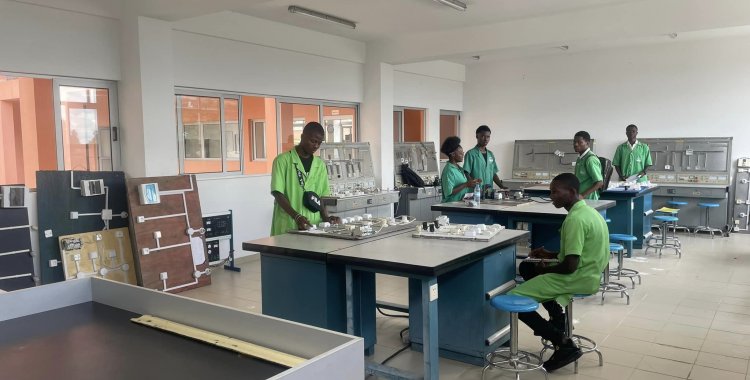According to the minister, these investments help combat illiteracy, with the rate having fallen from 85 percent in 1975 to 24 percent this year.
Speaking this Monday at the central event of November 11, which took place in the province of Malanje, Maria do Rosário Bragança highlighted that the benefits of national independence are evident, especially in the area of Education, which are manifested in the expansion of the school network, in the increase in access to the education system and in a special focus on the training and management of the teaching staff.
However, the minister, quoted by Angop, highlighted that, although progress has been made, the Government recognizes the considerable investment that still needs to be made, in a sustainable manner, to overcome the various challenges, mainly those that still limit the access of many children to the education system.
Still in the area of Education and within the scope of the celebrations of the 49th anniversary of national independence, during her visit to Malanje, the Minister of State for Social Affairs inaugurated a polytechnic institute.
According to a statement from the provincial government of Malanje, which VerAngola had access to, since Sunday the province has had "more options for technical courses in the areas of civil construction and electricity".
The increase in the training offer is the result of the opening of the José Eduardo Dos Santos Industrial Polytechnic Institute, which has 20 classrooms and "capacity for more than 1000 students".
It also has dormitories and is "equipped with modern material for practical classes".
At the inauguration ceremony, the minister said that this infrastructure represents one of "the great gains of national independence, with regard to the human capacity of Angolans".
"Investing in technical education is preparing young people for a future of opportunities and development, enabling them to enter the job market and bringing value to companies and industry", said the minister, quoted in the statement.
"It is true that we still have challenges ahead, but we hope that with a lot of work in the short term, we will no longer have children and young people who do not attend school," she added.
Her speech at the central event on 11 November went beyond the Education sector, covering a range of topics, such as agriculture.
In statements made during the event on Monday, the minister also mentioned the National Plan for the Promotion of Grain Production (Planagrão). This plan aims to produce six million tonnes of cereals and pulses by 2027, with the aim of increasing food security and reducing imports, the minister said, adding that the land is being prepared to achieve this goal.
Among many other topics covered, the minister also stressed that "efforts will continue to be made" to increase national production and employment: "Efforts will continue to be made to increase national production and employment, making the country less dependent on food imports and reducing social inequalities, ensuring that Angolans have a better quality of life", she pointed out, quoted by Jornal de Angola.







